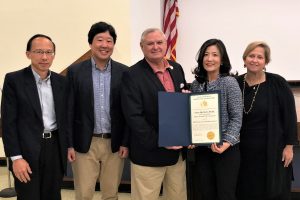The holiday season brings a push for residents to buy gifts from local retailers to support hometown businesses and boost the local economy. But what about eating local?

With a grant from the Alabama Department of Agriculture and Industries, researchers from UA’s College of Human Environmental Sciences will examine factors tied to students’ perceptions of Alabama-grown produce and create a plan to increase awareness and consumption.
The study’s principal investigators are Dr. Seung Eun Jung, assistant professor; Alvin Niuh, assistant professor; Dr. Kimberly Severt, associate professor and director of the hospitality management program; and Dr. Yeon Ho Shin, assistant professor. All four researchers are part of UA’s department of human nutrition and hospitality management.
“My research team has conducted various local food consumption behavior studies over the past several years,” said Shin. “Not only does consuming local food benefit the consumer, but it also benefits the community. When buying local, money is returned to the neighbor’s pocket, resulting in a positive economic impact on the state of Alabama.”
Shin recently conducted pilot research with Jung to investigate UA students’ local food consumption pattern. They discovered that students generally lacked awareness about Alabama-raised food, were unfamiliar with locally grown crops or didn’t know where to purchase them.
“Our study will not only provide education on the benefits of eating local food but will also highlight the local food the state of Alabama offers,” said Dr. Severt.
Jung, a registered dietitian, believes it is the responsibility of health and nutrition professionals to expand nutrition education to include ideas of environmental conservation and sustainability.
“We need to help facilitate students to make informed food choices that not only preserve our natural resources, but also ensure food security for future generations,” said Jung. “I hope we can develop an effective educational program that improves sustainable dietary practices as well as the dietary quality among college students.”
Once the study is complete, the group intends to develop a theory-based education program to educate students in hopes of increasing their awareness and knowledge of Alabama crops. The plan is to deliver the message using social media as a platform.
